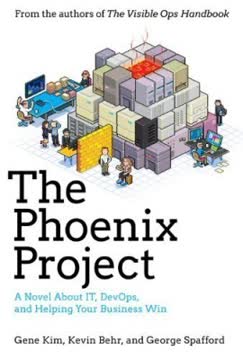Key Takeaways
1. Autism is a spectrum disorder with varying impacts on social interaction and behavior
"Autism spectrum disorder must meet a specific definition."
Autism is complex. It's characterized by difficulties in social communication, restricted interests, and repetitive behaviors. However, the severity and presentation can vary widely between individuals. Some may have profound impairments, while others might be considered "high-functioning" with subtle differences.
Key features include:
- Challenges with social interaction and communication
- Restricted or repetitive behaviors and interests
- Sensory sensitivities
- Difficulty with change or transitions
- Potential strengths in pattern recognition, attention to detail, or specialized knowledge
The autism spectrum encompasses a wide range of abilities and challenges. Understanding this variability is crucial for proper diagnosis, support, and appreciation of neurodiversity.
2. Autistic individuals often excel in focused areas but struggle with change and sensory overload
"I believe kids with autism wind up being excluded from play because, again, they just don't get the social cues of what to do when."
Intense focus is common. Many autistic individuals develop deep, specialized interests and can concentrate for long periods on tasks aligned with those interests. This focus can lead to exceptional skills or knowledge in specific areas.
However, challenges arise with:
- Unexpected changes to routines or plans
- Sensory overload from lights, sounds, textures, etc.
- Social situations requiring rapid processing of unspoken cues
- Transitioning between activities or environments
These difficulties stem from differences in how the autistic brain processes information and stimuli. While the intense focus can be a strength, it's balanced by a need for predictability and struggle with sensory regulation that can impact daily functioning.
3. Masking autism can be exhausting and lead to burnout or meltdowns
"Masking –– also known as camouflaging –– is the process of hiding one's internal feelings from the world and of putting on a 'mask' of more 'socially appropriate' emotions, actions, and feelings."
Social camouflage is common. Many autistic individuals, especially those diagnosed later in life, develop strategies to blend in socially. This can involve mimicking others' behavior, suppressing natural reactions, or forcing eye contact.
Consequences of long-term masking:
- Mental and emotional exhaustion
- Increased anxiety and stress
- Loss of sense of self
- Higher risk of burnout or meltdowns
- Delayed diagnosis, especially in women and girls
While masking can help in certain situations, it's important to balance it with opportunities for authentic self-expression and environments that accept neurodiversity. Recognizing the toll of constant masking is crucial for maintaining mental health and self-acceptance.
4. Empathy and emotions exist in autism, but may be expressed differently
"People with autism, at least at any level of functioning near my own, keenly experience emotions––usually their own."
Emotional experiences are real. Contrary to popular misconceptions, autistic individuals do feel empathy and a full range of emotions. The challenge often lies in recognizing and appropriately expressing those emotions, or in intuiting the emotional states of others.
Key points about autism and emotion:
- Difficulty reading subtle emotional cues in others
- Challenges in expressing emotions in expected ways
- Intense emotional experiences, sometimes leading to overwhelm
- Potential for deep empathy once a situation is understood
- Need for more direct communication about emotional states
Understanding that autistic individuals experience emotions, even if expressed atypically, is crucial for building meaningful relationships and providing appropriate support. Clear, direct communication about emotions can bridge the gap in understanding.
5. Successful relationships and careers are possible with autism through understanding and accommodation
"The goal so far has been to educate and inform on autism, but in this section, we turn to the 'secrets' of managing autism in a successful manner."
Success is achievable. With self-awareness, proper support, and accommodations, autistic individuals can thrive in relationships and careers. This often requires open communication and a willingness to adapt on both sides.
Strategies for success:
- Clear communication of needs and boundaries
- Finding work that aligns with strengths and interests
- Developing coping mechanisms for sensory and social challenges
- Creating structured environments and routines
- Building a support network that understands autism
- Embracing neurodiversity in the workplace and relationships
Success looks different for everyone, but understanding autism's impacts and finding ways to work with, rather than against, autistic traits can lead to fulfilling personal and professional lives.
6. Parenting with autism presents unique challenges and opportunities
"Imagine being a regimented perfectionist who is quick to anger, doesn't suffer fools gladly, likes peace and quiet, and who reads emotions poorly, dwelling in the tiny details and ignoring the big picture. Now add four little kids and stir."
Parenting styles may differ. Autistic parents often bring unique strengths to child-rearing, such as consistency, attention to detail, and passionate engagement in their children's interests. However, they may also face challenges related to sensory overload, social expectations, and emotional regulation.
Key considerations:
- Potential for intense focus on children's development and well-being
- Difficulties with unpredictability and chaos of family life
- Need for clear routines and structure
- Challenges in intuiting children's emotional needs
- Opportunities for teaching children about neurodiversity firsthand
Open communication with partners, children, and support systems is crucial. Finding strategies to manage sensory overload and emotional regulation while embracing the joys of parenting can lead to rewarding family experiences.
7. Early diagnosis and appropriate interventions can significantly improve outcomes
"I believe the first and primary responsibility for accommodating one's needs and integrating oneself successfully into society falls on the self."
Early support is crucial. While autism is a lifelong condition, early diagnosis and intervention can dramatically improve adaptive skills, communication, and overall quality of life. This is especially true for children, but even adults can benefit from a diagnosis and targeted support.
Benefits of early intervention:
- Development of coping strategies and social skills
- Improved communication abilities
- Enhanced self-awareness and self-advocacy
- Access to appropriate educational and occupational support
- Reduced risk of mental health complications
For adults diagnosed later in life, understanding autism can provide context for past experiences and guide future personal growth. It's never too late to seek support and develop strategies for managing autism's challenges while leveraging its strengths.
8. Autistic traits can be leveraged for success in certain fields and endeavors
"I believe certain forms of higher functioning autism may lend themselves very well to the marketing field, as those who experience its symptoms spend so much of their regular mental energy in simulating other people's thoughts."
Strengths can be advantages. Many traits associated with autism, such as attention to detail, pattern recognition, and intense focus, can be significant assets in certain fields. Recognizing and nurturing these strengths can lead to exceptional achievements.
Areas where autistic traits may excel:
- Technology and computer programming
- Scientific research and data analysis
- Creative arts and music
- Engineering and problem-solving
- Quality control and precision work
- Specialized knowledge fields
By aligning interests and strengths with career choices, autistic individuals can find deeply fulfilling work that capitalizes on their unique cognitive style. Employers who recognize and accommodate neurodiversity can benefit from these specialized skills.
9. Self-awareness and coping strategies are crucial for managing autism in daily life
"Accommodations need not be anything to be ashamed of."
Understanding is power. Developing self-awareness about how autism affects one's life is the first step in developing effective coping strategies. This includes recognizing triggers, understanding personal strengths and challenges, and learning to advocate for needed accommodations.
Key coping strategies:
- Developing routines and structure
- Creating sensory-friendly environments
- Learning and practicing social scripts
- Using visual aids and written instructions
- Engaging in calming activities or "stims"
- Practicing self-care and stress management
- Seeking support from understanding individuals or groups
By embracing autism as a part of one's identity and developing personalized coping strategies, individuals can navigate daily challenges more effectively and lead fulfilling lives aligned with their values and strengths.
Last updated:
FAQ
What's Secrets of the Autistic Millionaire about?
- Personal Journey: The book is a memoir by David William Plummer, detailing his experiences from being an autistic child to a successful programmer at Microsoft.
- Understanding Autism: It provides insights into autism, particularly high-functioning autism, and its impact on various life aspects, including work and relationships.
- Empowerment and Success: The narrative emphasizes that success is multifaceted, aiming to empower those on the autism spectrum to lead fulfilling lives.
Why should I read Secrets of the Autistic Millionaire?
- Unique Perspective: Plummer offers a firsthand account of living with autism, providing insights often overlooked in mainstream discussions.
- Invaluable Insights: Readers gain understanding of traits that can lead to success for individuals with autism, helping them leverage their strengths.
- Support for Families: The book serves as a resource for families, offering a deeper understanding of autism and how to support loved ones effectively.
What are the key takeaways of Secrets of the Autistic Millionaire?
- Neurodiversity vs. Disorder: Autism is presented as a difference rather than a disorder, promoting acceptance and understanding.
- Importance of Accommodations: Plummer highlights the need for accommodations in workplaces and schools to help individuals with autism thrive.
- Personal Growth: Understanding one's autism can lead to better management of challenges and leveraging of strengths.
How does Secrets of the Autistic Millionaire address the concept of neurodiversity?
- Neurodiversity Definition: The book defines neurodiversity as recognizing neurological differences as natural variations of the human experience.
- Strengths and Challenges: Plummer discusses unique strengths of individuals with autism, advocating for their celebration rather than viewing them as deficits.
- Advocacy for Accommodations: The author supports accommodations in various settings to help individuals with autism thrive and contribute meaningfully.
What strategies does Secrets of the Autistic Millionaire suggest for individuals with autism?
- Self-Awareness: Emphasizes understanding one's own autism to identify strengths and challenges, leading to better management.
- Seeking Accommodations: Encourages seeking adjustments in communication styles and work environments to enhance success.
- Building Support Networks: Highlights the value of strong support networks, including family and mentors, for encouragement and guidance.
How does Secrets of the Autistic Millionaire explore the relationship between autism and employment?
- Employment Challenges: Discusses unique workplace challenges, such as social interactions and communication difficulties.
- Strengths in the Workplace: Highlights strengths like attention to detail and problem-solving skills, encouraging employers to leverage these.
- Creating Inclusive Work Environments: Advocates for inclusive environments that accommodate the needs of individuals with autism.
What is the significance of the title Secrets of the Autistic Millionaire?
- Financial Success: While suggesting financial success, the book clarifies that personal fulfillment and happiness are equally important.
- Empowerment Message: Conveys empowerment for individuals with autism, encouraging them to redefine success.
- Personal Journey: "Millionaire" reflects Plummer's achievements and serves as a metaphor for the wealth of knowledge shared.
How does Plummer describe monotropic thinking in Secrets of the Autistic Millionaire?
- Focused Problem-Solving: Monotropic thinking allows deep concentration on one issue, leading to innovative solutions in technical fields.
- Social Limitations: This thought process can limit social interactions, as individuals may struggle with multiple topics simultaneously.
- Functional Memory: Plummer's memory focuses on actions rather than personal details, beneficial in professional contexts but challenging in personal relationships.
What is stimming, and why is it important according to Secrets of the Autistic Millionaire?
- Self-Calming Mechanism: Stimming refers to behaviors that help manage anxiety and sensory overload, serving as a coping strategy.
- Variety of Forms: Includes behaviors like hand-flapping or rocking, which may be disruptive but are critical for emotional balance.
- Acceptance of Stimming: Plummer advocates for understanding and accepting stimming as a valid coping mechanism.
How does Secrets of the Autistic Millionaire address the challenges of relationships for individuals with autism?
- Communication Barriers: Discusses struggles with social cues and emotional nuances, leading to misunderstandings in relationships.
- Need for Reassurance: Emphasizes clear communication and reassurance, suggesting patience and explicit emotional support from partners.
- Strategies for Connection: Offers advice for fostering better relationships, encouraging direct communication about feelings and needs.
What role does bullying play in Plummer's life as described in Secrets of the Autistic Millionaire?
- Formative Experiences: Childhood bullying significantly impacted Plummer's self-esteem and social development.
- Cathartic Resolution: Shares a dream of confronting bullies after a job offer from Microsoft, providing closure and empowerment.
- Long-Term Effects: Notes that bullying can lead to lasting emotional scars, stressing the importance of addressing it for mental health support.
What insights does Secrets of the Autistic Millionaire provide about employment for individuals with autism?
- Valuable Skills: Highlights strengths like analytical skills and attention to detail, making individuals valuable in technical fields.
- Challenges in Social Interaction: Discusses difficulties in navigating office politics and social dynamics, emphasizing employer understanding.
- Importance of Demonstrating Ability: Advises focusing on showcasing skills and abilities, using a portfolio to mitigate social presentation concerns.
Review Summary
Secrets of the Autistic Millionaire receives mixed reviews, with an overall rating of 4.32/5. Readers appreciate the author's personal experiences and insights into autism, finding it enlightening and valuable. Some praise its easy readability and humor. Critics note the book's anecdotal nature, redundancy, and dated thinking on autism. Many find it helpful for understanding autism and working with those on the spectrum. The book covers the author's life, career, and autism diagnosis, offering advice for both individuals with autism and their loved ones.
Similar Books









Download PDF
Download EPUB
.epub digital book format is ideal for reading ebooks on phones, tablets, and e-readers.




